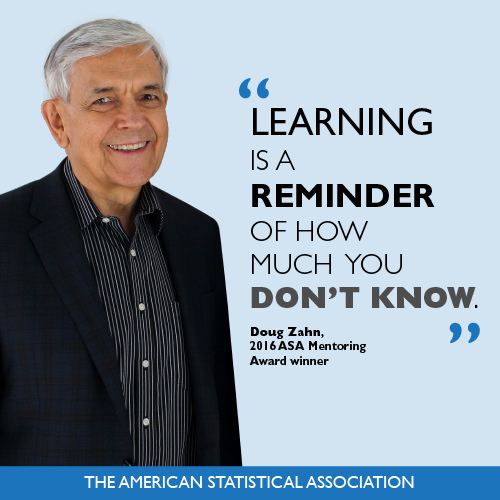 Mine Dogucu is a tenure-track assistant professor of teaching and vice chair for undergraduate studies in the department of statistics at the University of California at Irvine. She is an educator with an interest in statistics and data science education and an applied statistician with experience in educational research. She is also the co-author of the upcoming book Bayes Rules! An Introduction to Bayesian Modeling with R.
Mine Dogucu is a tenure-track assistant professor of teaching and vice chair for undergraduate studies in the department of statistics at the University of California at Irvine. She is an educator with an interest in statistics and data science education and an applied statistician with experience in educational research. She is also the co-author of the upcoming book Bayes Rules! An Introduction to Bayesian Modeling with R.
College is a busy time. It is busy socially, as it is a great time to build life-long friendships. For some, it is a busy time to make money to live. It is also a busy time for those juggling multiple courses and activities. The most important skill one can build early on is time management. Without intentional time-management methods, demands will be overwhelming. The following three types of apps may be especially helpful for time management:
- Digital calendar
- Task manager
- Social media blocker
For a calendar, it might be practical to use whatever your university is using (e.g., Google, Outlook, etc.) Be mindful of how much time is allocated to classes, work, studying, and social life. You can do this by using different colors for different types of events. Task managers will help you remember assignments and manage repeating tasks (e.g., do laundry every Saturday). Last, many people have a social media addiction. If you have a hard time controlling the time you spend on social media, try a blocker app that can keep you from logging in during certain hours of the day.
There are many opportunities on campus that might also be helpful as you build your career. These can include guest speakers. These speakers are often interested in student engagement. If you can overcome shyness, you can talk to them, as well.
Use the career office and writing offices as much as possible. These offices provide great services and training programs that will help with career readiness. Writing is one of the most important skills you can develop during your studies.
Perhaps the most important service on most campuses is counseling! There is nothing more important than one’s health. Mental health is as important as physical health. Seek all the help you need without any hesitation.
Graduate School and the Job Market
It is never too early to start thinking about what comes after college. One of the decisions you have to make is what comes immediately after—graduate school or the job market? Try to gather as much information as possible from everyone about the different paths. Different people with a variety of career paths can help you in the decision-making process. Be mindful of who you are talking to and their potential biases. For instance, if you get a professor’s opinion, they might be more inclined to support the graduate school path, as they are in academia themselves. After all, the most important thing is knowing your own self—your dreams, desires, and life goals.
The Electronic Undergraduate Statistics Research Conference takes place annually online and for free. This conference has two panels—one on graduate school and one on statistics careers. The second panel often has speakers who work in industry and government. These panels and the recordings from previous years may be helpful in demystifying graduate school and the job market. If you attend the live event, you can ask questions.
For those curious about graduate school, Ray Bai’s blog post “Demystifying Graduate Admissions for Statistics PhD Programs” might be helpful. In addition, the website A First-Gen’s Guide to Grad School: How to Get in, Survive, and Thrive is a great resource.
When it is time to apply for graduate school, you’ll need to ask for recommendation letters. Make sure to read “Tips on Recommendation Letters for Students and Instructors” on the Data Pedagogy blog. If you are living in the United States, you might consider reading Simon P. Couch’s “Applying to the NSF Graduate Research Fellowship (GRFP).”
Summer programs or internships can also help you decide the path you’d like to take. You can consider one of the Research Experiences for Undergraduates or Summer Institutes in Biostatistics and Data Science programs.
For jobs, if you consider government jobs, make sure to take a look at “Find Your Next Job in Data Science in the Federal Government” and the American Statistical Association’s Internships and Fellowships webpage. You might also like the Build a Career in Data Science podcast.
While searching for jobs, make sure to think about your application area of interest. You can widen your search with keywords such as “statistics,” “data science,” “biostatistics,” “bioinformatics,” “psychometrics,” and “econometrics.”
Connecting with People
Human connections are important. That is not because someone will help you find a job. As humans, we learn from each other and how to overcome struggles. When you make connections, you learn some and teach some.
Campus student groups are important for making connections. For instance, on my campus, Data @ UCI is the main group for students interested in data science. This group did not exist three years ago. This is all to say, even if you don’t have a group yet, you might consider taking the lead and starting one to build your own data community. You might even consider building a student chapter of the American Statistical Association.
Meetup.com is an online website that has groups of people with similar interests. You can consider joining a local Meetup group and attending their events. R Ladies, PyLadies, and R User Groups are just some of the Meetup groups.
You might also consider becoming a member of a professional organization to connect with other members. Organizations with data science communities include the American Statistical Association, Association for Computing Machinery, and Institute of Electrical and Electronics Engineers.
Conferences and seminars are also great places to connect with others. Keep an eye out for ones in your area.
Portfolio
Regardless of the path you are taking, building a data science portfolio is an important part of learning. Your portfolio can include class projects and projects you do outside of class for fun. These projects do not necessarily need to have groundbreaking scientific knowledge. They can be learning opportunities for you while also showcasing your knowledge to others.
One way of making projects public is using GitHub and/or hosting/linking to them on your website. I cannot emphasize the importance of GitHub (and the like) for showcasing your work and data skills. Having a personal website can really show who you are, your interests, and your projects.
If you are looking for projects outside of class, tidytuesday provides a data set every Tuesday. On social media, especially X, you might find others sharing their work using #TidyTuesday. Community members publicly sharing their work also serve as inspiration.
If working on a class project, you might consider submitting your project to the Undergraduate Class Project Competition. Submission takes place semiannually in December and June. The Electronic Undergraduate Statistics Research Conference is also a great place to submit your projects. If accepted, you can present your work through a video presentation.
Closing Thoughts
You might hear the following:
- You are not a data scientist because you are not strong in math/stats/computer science.
- What you do is not data science because it does not involve advanced computing.
- What you do is not data science because it does not involve advanced probability.
- You cannot be a data scientist because you took courses on X and Y but not Z.
You might hear others say these or you might be saying them to yourself. Even though it is good to know math, stats, and computing, there is no data scientist who knows it all. Focus on your strengths and work to improve your weaknesses.
Last but not least, as you navigate to make a permanent place in the data science world, always remember to consider the impact of your work on humans, other living beings, and the planet. Ethics is perhaps one of the most important parts of data science you’ll need to learn.
Editor’s note: This article was originally published on Mine’s blog, Data Pedagogy, in April 2024. It has been edited for style and space and republished with permission.




Leave a Reply